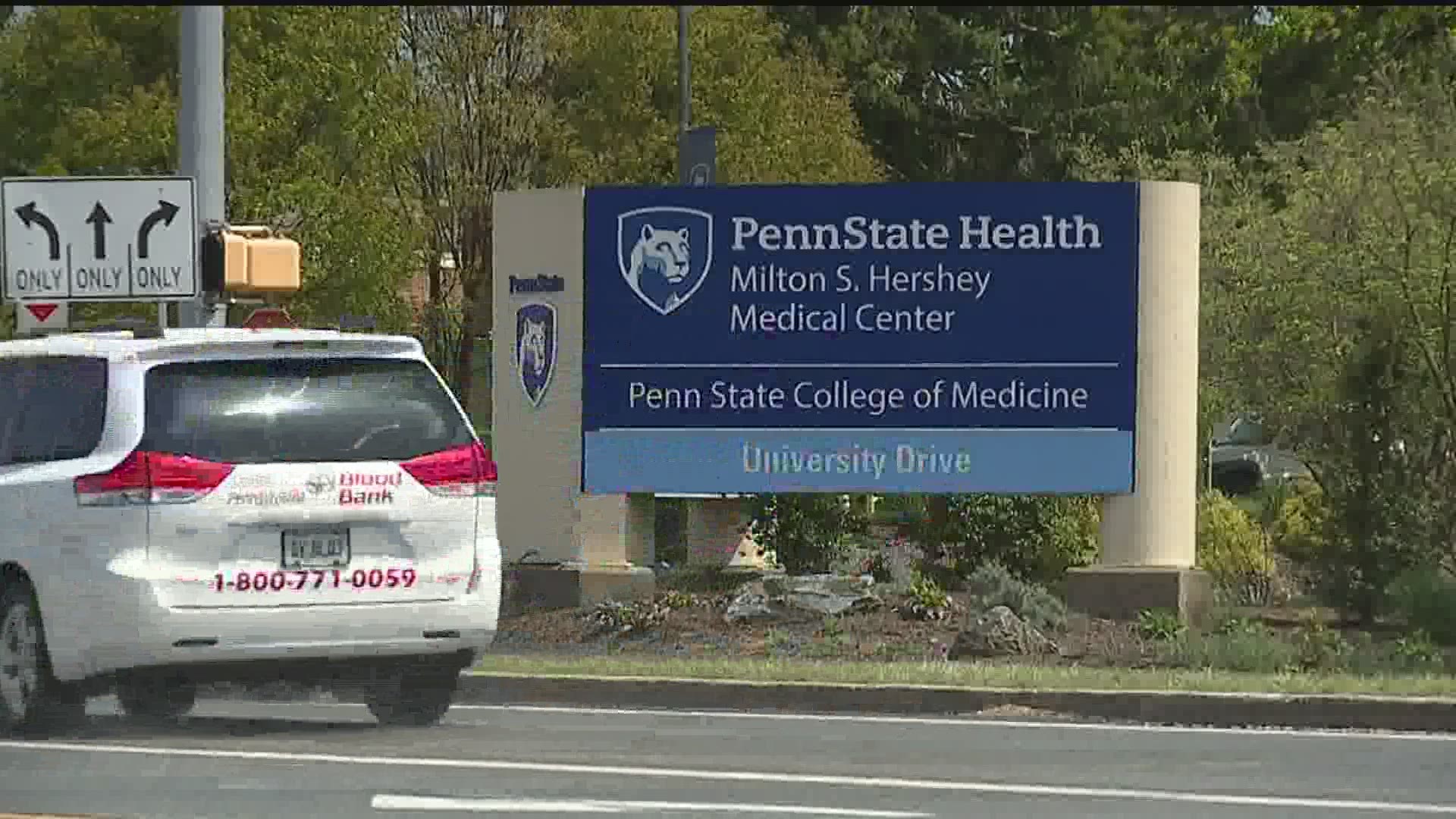HERSHEY, Pa. — As COVID-19 cases continue to add up in Pennsylvania and spike in other states, doctors at Penn State Health Milton S. Hershey Medical Center are concerned other medical emergencies may be ignored by patients staying at home.
"We want everyone to feel safe, to come to us and we are taking extraordinary steps to ensure that," Dr. Susan Promes, Chair of the Department of Emergency Medicine at Penn State Health Milton S. Hershey Medical Center said.
According to Dr. Promes, Penn State Health's Hershey emergency department facility averaged only about half of its usual capacity from March-June. Currently, they're averaging around 80%, in a department that usually is full or over capacity. This sparked concerns for doctors that, even as backlogged surgeries continue and more vehicle accident patients visit the facility, other medical emergencies may be ignored.
RELATED: Staff at Penn State Hershey Medical Center shares their experience working with COVID-19 patients
"Mainly because people chose to stay at home, had milder symptoms and were worried about COVID," Dr. Raymond Reichwein, a neurologist at Penn State Health said.
Dr. Reichwein and Dr. Chad Zack, a cardiologist at Penn State Health, are particularly concerned that those experiencing stroke or heart attack symptoms may not visit the ER because of fears of contracting COVID-19. But not treating the symptoms could be even more dangerous.
"It turns out, individuals who have a mini stroke have symptoms that go away quickly, or a mild stroke, have a much higher likelihood of having another stroke in the next 90 days," Dr. Reichwein said "It is important to figure out why it happened and hopefully change the management so they don't end up with a subsequent disabling stroke."
"You are 10 times more likely to die from an untreated heart attack than you are from COVID-19," Dr. Zack said.
The organization has implemented new protocols on a variety of issues facing hospitals in order to limit COVID-19 spread.
When patients arrive, they will be met by a nurse with screening questions to identify symptoms and other needs.
"We are holding patients in our department, waiting for a COVID test even if the patient has no symptoms, to make sure it's negative before we place them in those rooms. The same holds true for any transfers," Dr. Promes said. "Once we're able to separate out whether or not we think the patient is at risk for COVID, then they will be assigned to rooms or maybe asked to wait depending on if the department is full."
"Once we know a patient is a potential COVID patient, we make sure they're put in a room with a door. We have a tent outside, patients may be place in a tent outside as well," Dr. Promes said.
If a patient tests positive for COVID-19, they will not be allowed to bring in a visitor. Any negative patient can have one visitor, and doctors ask that visitor be the only one permitted for the entire duration of a patient's stay.
"We're doing everything to protect our care team, as well as patients, families and our support people," Dr. Promes said.

